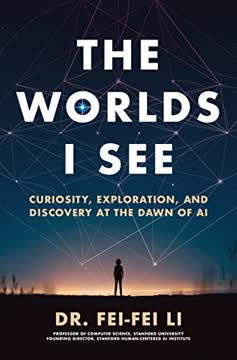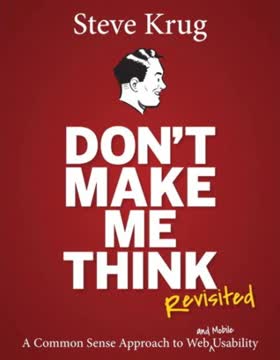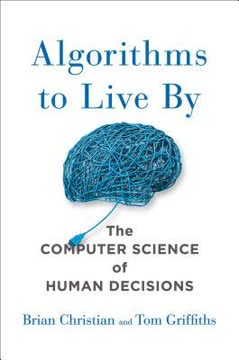Key Takeaways
1. Sensemaking: The Art of Cultural Inquiry in a Data-Driven World
Sensemaking is a method of practical wisdom grounded in the humanities.
Holistic understanding. Sensemaking is an approach that combines cultural inquiry, qualitative research, and humanities-based thinking to gain deeper insights into human behavior and social contexts. It stands in contrast to the reductionist, data-driven methods prevalent in today's business and technological landscape.
Five principles of sensemaking:
- Culture—not individuals
- Thick data—not just thin data
- The savannah—not the zoo
- Creativity—not manufacturing
- The North Star—not the GPS
This approach emphasizes the importance of understanding shared cultural meanings, rich contextual information, real-world observations, creative insights, and holistic perspectives in making sense of complex human phenomena.
2. The Limitations of Silicon Valley's Algorithmic Thinking
When we focus solely on hard data and natural science methods—when we attempt to quantify human behavior only as so many quarks or widgets—we erode our sensitivity to all the forms of knowledge that are not reductionist.
Critique of tech-centric worldview. The author argues that the Silicon Valley mindset, with its emphasis on algorithms, big data, and disruptive innovation, often fails to capture the nuances of human experience and cultural context.
Limitations of algorithmic thinking:
- Overreliance on quantitative data
- Neglect of cultural and historical knowledge
- Assumption that all problems can be solved through technology
- Disregard for the value of humanities-based education
This narrow focus on STEM-based knowledge and technological solutions can lead to a superficial understanding of human behavior and societal challenges, potentially resulting in misguided strategies and products.
3. Understanding Cultures, Not Just Individuals
We are, all of us, situated in a context. If we are to understand human behavior, then we must understand context, an argument for the holistic versus the atomized.
Shared worlds and background practices. The author emphasizes the importance of studying cultures and social contexts rather than focusing solely on individual behaviors or preferences. This approach, grounded in phenomenology and social theory, reveals the shared meanings and practices that shape human experience.
Key concepts:
- Background practices: The unspoken rules and assumptions that govern behavior in a given culture
- Chains of meaning: The interconnected web of meanings that objects and actions have within a cultural context
- Worlds: The shared social realities that people inhabit and through which they make sense of their experiences
By understanding these cultural dimensions, organizations can gain more profound insights into their customers, employees, and stakeholders, leading to more effective strategies and solutions.
4. The Power of Thick Data in Revealing Human Truths
Thick data captures not just facts but the context of those facts.
Rich contextual information. Thick data refers to qualitative, contextual information that provides depth and meaning to quantitative data points. It helps reveal the "why" behind human behavior and cultural phenomena.
Four types of knowledge:
- Objective knowledge: Measurable, verifiable facts
- Subjective knowledge: Personal opinions and feelings
- Shared knowledge: Cultural understandings and social norms
- Sensory knowledge: Bodily and intuitive ways of knowing
By synthesizing these different types of knowledge, sensemakers can develop a more nuanced and holistic understanding of human behavior and social contexts. This approach allows for insights that go beyond surface-level observations and statistical correlations, revealing deeper truths about human experience and motivation.
5. Immersing in Real-World Contexts: The Savannah, Not the Zoo
Go back "to the thing itself." Instead of watching the lions eating food from a bowl in a cage, go out and observe them hunting on the savannah. Escape the zoo.
Real-world observation. The author advocates for immersing oneself in the actual contexts where human behavior occurs, rather than relying on controlled environments or abstract data.
Benefits of real-world immersion:
- Reveals unexpected patterns and connections
- Provides rich, contextual information
- Allows for a more holistic understanding of phenomena
- Challenges preconceived notions and assumptions
This approach, inspired by phenomenology, emphasizes the importance of direct experience and observation in understanding human behavior and cultural phenomena. It encourages researchers and decision-makers to step out of their comfort zones and engage with the messy, complex realities of the world.
6. Creativity as a Receptive State of Grace, Not Manufactured Will
Ideas are like gifts that the world bestows on us rather than creations we summon through force of will when we need them.
Receptive state of creativity. The author argues that true creativity emerges from a state of openness and receptivity, rather than through forced, linear processes or brainstorming techniques.
Characteristics of creative grace:
- Openness to unexpected insights
- Immersion in the subject matter
- Ability to synthesize diverse information
- Receptivity to intuitive knowledge
This approach contrasts with the "design thinking" model popular in many industries, which the author criticizes as overly prescriptive and detached from real-world contexts. Instead, sensemaking encourages cultivating a deep understanding of the subject matter and remaining open to unexpected connections and insights.
7. Leadership Through Perspective, Not Just Data Points
Sensemaking teaches us where to put our attention. We don't try to know everything; we work to make sense of something.
Cultivating perspective. Effective leadership in complex environments requires developing a nuanced perspective that goes beyond data analysis. This involves synthesizing diverse forms of knowledge and developing a holistic understanding of the situation.
Key leadership skills:
- Cultural interpretation
- Social intuition
- Analytical empathy
- Aesthetic judgment
By cultivating these skills, leaders can navigate complex situations more effectively, making decisions that account for the subtle cultural and social dynamics at play. This approach allows for more innovative and contextually appropriate solutions to challenges.
8. Mastering Sensemaking: Becoming a Cultural Connoisseur
Mastery—connaissance—is a way of navigating through a body of knowledge.
Developing cultural expertise. The author describes the process of becoming a "connoisseur" of cultural knowledge, able to navigate complex social and cultural landscapes with sophistication and insight.
Stages of sensemaking mastery:
- Developing analytical categories for social and cultural phenomena
- Recognizing subtle patterns and relationships
- Cultivating aesthetic judgment and interpretive skills
- Applying insights to navigate complex situations
This process of mastery involves continuous learning, reflection, and engagement with diverse cultural contexts. By developing these skills, individuals and organizations can become more adept at understanding and responding to the complex human dynamics that shape our world.
Last updated:
FAQ
1. What is "Sensemaking: The Power of the Humanities in the Age of the Algorithm" by Christian Madsbjerg about?
- Humanities vs. Algorithms: The book argues for the enduring value of the humanities—literature, philosophy, history, art—in understanding people and culture, especially as society becomes increasingly obsessed with data, algorithms, and STEM fields.
- Sensemaking Defined: Madsbjerg introduces "sensemaking" as a rigorous, humanities-based practice of cultural inquiry that helps individuals and organizations interpret complex human behavior and make better decisions.
- Critique of Data-Driven Culture: The author critiques the overreliance on big data and algorithmic thinking, showing how it often fails to capture the richness and unpredictability of human life.
- Practical Application: Through case studies and stories from business, politics, and daily life, the book demonstrates how sensemaking leads to deeper insights and more effective leadership.
2. Why should I read "Sensemaking" by Christian Madsbjerg?
- Relevance in a Data-Driven World: The book addresses the growing dominance of data and algorithms in business, education, and society, making it essential reading for anyone navigating these changes.
- Career and Leadership Insights: Madsbjerg shows that the most successful leaders often have backgrounds in the humanities, offering a counter-narrative to the STEM-only approach to career success.
- Practical Tools: Readers gain actionable frameworks for understanding culture, interpreting complex situations, and making better decisions in business and beyond.
- Restoring Human Perspective: The book is a call to reclaim the human factor in organizations, innovation, and leadership, making it valuable for anyone interested in critical thinking and empathy.
3. What are the key takeaways from "Sensemaking" by Christian Madsbjerg?
- Humanities Are Essential: Training in the humanities is not just relevant but crucial for leadership, innovation, and understanding people.
- Limitations of Big Data: Data and algorithms can’t fully explain or predict human behavior; context, culture, and qualitative insights are indispensable.
- Sensemaking as a Method: The practice of sensemaking—deep cultural engagement, empathy, and pattern recognition—yields better insights than reductionist, quantitative approaches.
- Leadership Requires Perspective: The best leaders synthesize multiple types of knowledge and care deeply about the worlds they operate in.
4. How does Christian Madsbjerg define "sensemaking" in the book?
- Ancient Practice, Modern Need: Sensemaking is described as an ancient, humanities-based practice of cultural inquiry, updated for the challenges of the algorithmic age.
- Practical Wisdom (Phronesis): It involves practical wisdom—phronesis—combining knowledge and experience to interpret complex, ambiguous situations.
- Five Principles: The method is built on five principles: Culture—not individuals; Thick data—not just thin data; The savannah—not the zoo; Creativity—not manufacturing; The North Star—not the GPS.
- Deep Engagement: Sensemaking requires rigorous, sustained engagement with culture, empathy, and the ability to see patterns and meaning in context.
5. What are the "Five Principles of Sensemaking" in "Sensemaking" by Christian Madsbjerg?
- Culture—not Individuals: Focus on understanding shared worlds and social contexts, not just individual opinions or behaviors.
- Thick Data—not Just Thin Data: Value rich, contextual, qualitative data (stories, moods, rituals) over abstract, quantitative data points.
- The Savannah—not the Zoo: Study people in their natural, lived environments, not in artificial or abstracted settings.
- Creativity—not Manufacturing: Embrace abductive, creative reasoning and openness to new insights, rather than rigid, linear problem-solving.
- The North Star—not the GPS: Use sensemaking to develop perspective and direction, rather than relying solely on step-by-step, algorithmic guidance.
6. How does "Sensemaking" by Christian Madsbjerg critique the dominance of big data and algorithmic thinking?
- Reductionism Warning: The book warns that reducing human behavior to data points strips away context, meaning, and unpredictability.
- False Objectivity: Madsbjerg argues that big data often gives the illusion of objectivity and certainty, but lacks explanatory power and insight into "why" things happen.
- Case Studies of Failure: Examples like Google Flu Trends and failed market research show how data-driven approaches can miss the real drivers of human behavior.
- Need for Interpretation: The author insists that data must be interpreted through human judgment, cultural understanding, and critical thinking.
7. What is the difference between "thick data" and "thin data" in "Sensemaking" by Christian Madsbjerg?
- Thick Data: Refers to rich, qualitative, contextual information—stories, moods, rituals, sensory experiences—that reveal the meaning behind behaviors.
- Thin Data: Consists of quantitative, abstract, decontextualized data points—clicks, purchases, survey responses—that lack depth and context.
- Importance of Thick Data: Madsbjerg argues that thick data is essential for understanding culture, making sense of complex situations, and making better decisions.
- Integration Needed: While thin data has its place, it must be complemented by thick data to achieve true insight.
8. How does "Sensemaking" by Christian Madsbjerg apply to business and leadership?
- Case Studies: The book features examples from Ford, luxury car brands, supermarkets, and hedge funds, showing how sensemaking leads to better products, strategies, and market insights.
- Leadership Skills: Successful leaders use sensemaking to interpret complex environments, understand customers, and anticipate change.
- Organizational Culture: Sensemaking helps organizations move beyond siloed, reductionist thinking to holistic, empathetic understanding of their markets and employees.
- Competitive Advantage: Companies that practice sensemaking are better equipped to innovate, adapt, and thrive in uncertain environments.
9. What role do the humanities play in "Sensemaking" by Christian Madsbjerg, and why are they important?
- Training for Perspective: The humanities train people to synthesize information, empathize with others, and see patterns in culture and history.
- Critical Thinking: Disciplines like literature, philosophy, and history foster critical thinking, creativity, and the ability to question assumptions.
- Leadership and Innovation: Many top leaders and innovators have humanities backgrounds, which help them navigate ambiguity and complexity.
- Cultural Engagement: The humanities provide the tools for deep cultural engagement, which is essential for sensemaking and effective decision-making.
10. What are some real-world examples or case studies from "Sensemaking" by Christian Madsbjerg?
- Ford and Lincoln: Ford used sensemaking to reimagine the Lincoln luxury brand by understanding the cultural worlds of new customers in China, India, and Russia.
- George Soros and Hedge Funds: Soros and his team used thick data and sensemaking to make successful, high-stakes bets in currency markets.
- Supermarkets and Cooking: A European supermarket chain increased revenue by understanding the moods and rituals of cooking, not just shopping habits.
- Healthcare and Aging: A Scandinavian insurance company improved customer retention by studying the lived experience of aging, not just financial data.
11. How does "Sensemaking" by Christian Madsbjerg suggest we cultivate creativity and insight?
- Abductive Reasoning: Emphasizes the importance of abductive (creative, non-linear) reasoning over deductive or inductive logic for generating new ideas.
- Immersion and Openness: Encourages deep immersion in context, openness to new experiences, and the willingness to sit with uncertainty and doubt.
- Letting Go of Control: Creativity is described as a state of grace—insights come through us, not from us, and cannot be forced by will alone.
- Pattern Recognition: The more we engage with culture, art, and theory, the more "furnished" our minds are for recognizing meaningful patterns and making creative leaps.
12. What are the best quotes from "Sensemaking" by Christian Madsbjerg, and what do they mean?
- "We are in grave danger of completely eroding our sense of the human world in favor of these false abstractions." — Warns against losing touch with real human experience by overvaluing data and models.
- "Sensemaking is a method of practical wisdom grounded in the humanities." — Highlights the book’s central thesis that practical, context-sensitive wisdom comes from humanities-based inquiry.
- "We learn to navigate through the rich reality of our world, developing a finely honed perspective on where we are and where we are headed." — Emphasizes the importance of perspective and navigation over rigid, step-by-step solutions.
- "Without care, everything is 'correct' and nothing is 'true.'" — Stresses that meaning and value come from caring about context, not just following procedures or optimizing for efficiency.
- "People are for making and interpreting meaning." — Summarizes the book’s ultimate answer to the question of human purpose in an age of algorithms.
Review Summary
Sensemaking argues for the importance of humanities and context in decision-making, contrasting with data-driven approaches. Reviewers found the book's critique of big data and algorithms insightful, appreciating its emphasis on cultural understanding. Some praised the real-world examples and implications for business, while others felt the arguments were repetitive or poorly supported. The book's stance on design thinking and Silicon Valley culture was controversial. Overall, readers found the book thought-provoking, though opinions varied on its effectiveness in presenting its core ideas.
Similar Books










Download PDF
Download EPUB
.epub digital book format is ideal for reading ebooks on phones, tablets, and e-readers.





